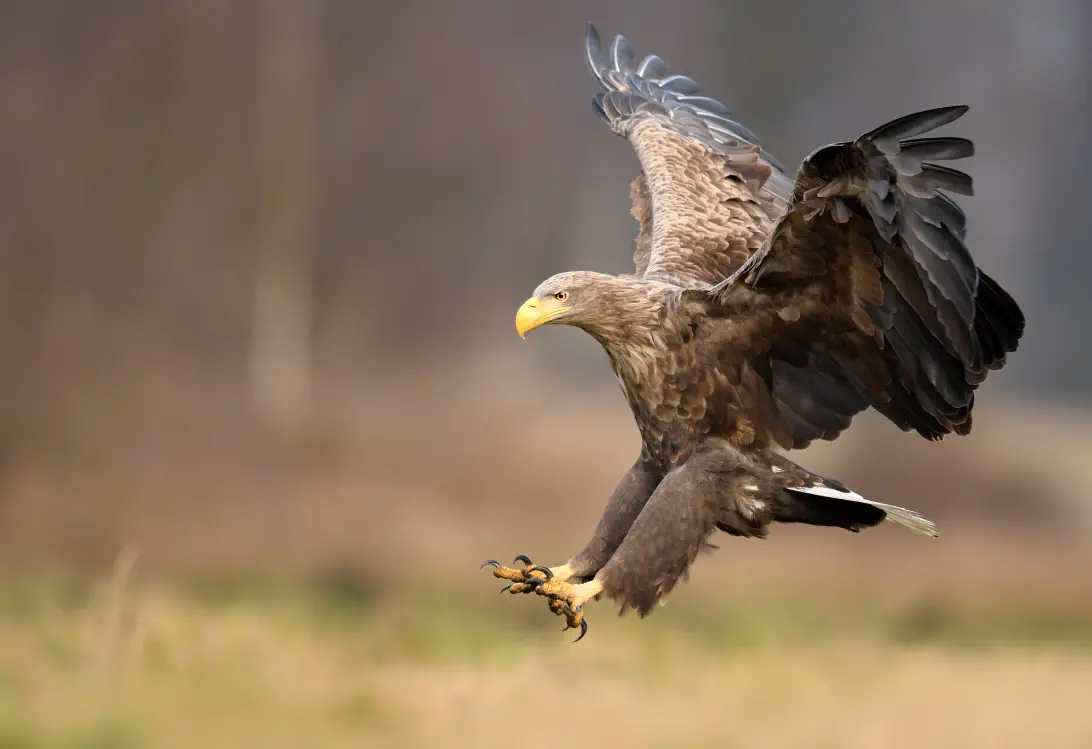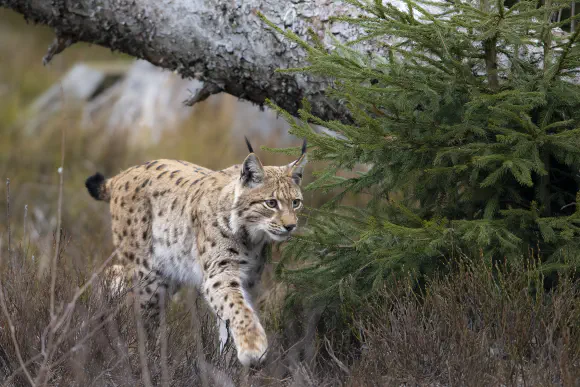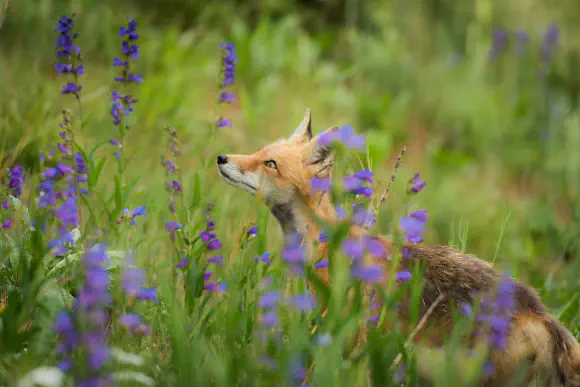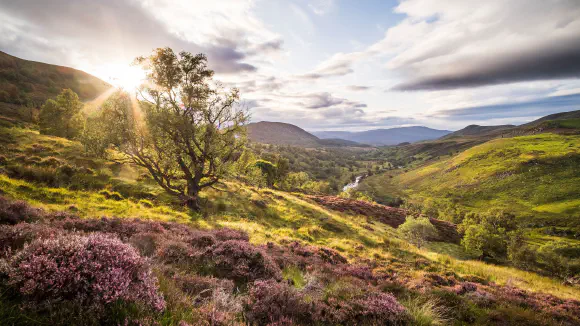White-Tailed Eagles in Cumbria
What is the Cumbrian White-Tailed Eagle Project?
The Cumbrian White-Tailed Eagle Project has been exploring the possibility of bringing white-tailed eagles back to the Cumbrian landscape. The project is hosted by the Cumbrian White-Tailed Eagle Steering Group, made up of organisations including the University of Cumbria, Cumbria Wildlife Trust, The Lifescape Project, RSPB, the Wildland Institute, the Lake District National Park Authority alongside local estate owners and managers. The white-tailed eagle is one of the 21 prioritised species to highlight the opportunities for restoration, reinforcement, or reintroduction in the Lake District National Park Partnership Nature Recovery Delivery Plan. Also, white-tailed eagles are recognised within the Cumbria Local Nature Recovery Strategy currently being developed as one of the shortlisted species forming the pool of potential species priorities.
An initial look into the possibility of returning these eagles to Cumbria was undertaken in 2023 with a pre-feasibility study led by the University of Cumbria. This work suggested that there is suitable habitat in Cumbria and the project is now looking in more depth at what people think about having the species back in the landscape. Online and in-person events will take place in Cumbria this year and will be a chance for local people to find out more about white-tailed eagles, the project, and share their opinions.
What are white-tailed eagles?
With a wingspan of up to 2.5 metres, white-tailed eagles, sometimes called sea eagles, are Britain’s largest native bird of prey. They are generalist predators and scavengers feeding on birds, fish, and mammals. They inhabit a range of marine and freshwater habitats across the Palearctic (stretching across Europe, parts of Central Asia and Siberia).
White-tailed eagles were once widespread in Britain, but numbers declined due to a reduction of areas for the birds to live, and the disturbance, harm and killings of these eagles leading to their loss from the United Kingdom in 1918. These eagles were once found in Cumbria in abundance, with the last recorded breeding attempt near Haweswater in 1787.
White-tailed eagles have since been reintroduced to Scotland and the Isle of Wight, as well as Ireland. There are now breeding populations across Scotland and Ireland, and in 2023 a white-tailed eagle chick was born in southern England for the first time in 243 years. Two more white-tailed eagle chicks have successfully left their nests in 2024. With several reintroduction projects completed or ongoing, there is much expertise in the United Kingdom and Ireland that our project is learning from and building on.
Do we know if white-tailed eagles could live in Cumbria now?
Cumbria is a location of strategic importance for white-tailed eagles, sitting between Scottish, Irish, and southern England populations which have already been reintroduced, and acting as a potential connection between each of them. Our research found that Cumbria has suitable habitat for these eagles as well as plenty of food, and that reintroduced birds would be able to grow into a healthy population. The southern half of Cumbria has ideal habitat for white-tailed eagles, with woodlands providing breeding sites, productive lakes and coastlines providing food, this area also has the lowest risk from infrastructure such as wind turbines.
How can I be involved?
Our work over the last few years has shown that Cumbria could support a successful population of white-tailed eagles. We would like to give local people a chance to learn about this species and the potential reintroduction project, as well as create opportunities for conversations and to explore local people’s opinions around the potential return of these eagles to the county.
In-person and online events will be launched in September, including a screening of the award-winning film ‘The Eagle With The Sun-lit Eye.’ Alongside film showings and online webinars, the project will offer different ways to listen to people, including:
- Drop-in sessions (all welcome)
- Questionnaires (for organisations and individuals)
- Workshops (community members)
- Meetings (for organisations/ interest groups)
Look out for more information about the project and local events on posters, social media (LinkedIn, Facebook, and Instagram), and in the events list below.
If you live in Cumbria and are unable to join us at one of our events, you can respond to our online questionnaire to share your views HERE.
You can also learn more about white-tailed eagles and some of the research the Cumbrian White-Tailed Eagle Project has undertaken in the documents below:
- Project Information Sheet
- White-tailed eagle – Biology and behaviour
- White-tailed eagle – History
- White-tailed eagle – Diet
- White-tailed eagles and livestock
- Review of white-tailed eagle diet in Europe and prey availability in Cumbria (full report)
- White-tailed eagles in Cumbria – Population Viability Analysis
- White-tailed eagles in Cumbria – Population Viability Analysis (full report)
- White-tailed eagles in Cumbria – Habitat Suitability Assessment
Upcoming events
Tuesday 29th October 9 am – 6pm
Drop-in information session
Location: Kendal, Lake District National Park HQ, Board room
Tuesday 5th November 6.30pm
Online webinar: White-tailed Sea Eagle Reintroduction to Ireland: restoration of a large avian apex predator
Location: virtual, please click HERE to join the webinar
Tuesday 12th November 11 am – 8pm
Drop-in information session
Location: Ulverston, Swarthmoor Hall, Conference room
Thursday 21st November 11 am – 8pm
Drop-in information session
Location: Maryport, The Settlement, Room 1
Wednesday 27th November 11 am – 8pm
Drop-in information session
Location: Silverdale, RSPB Leighton Moss, The Holt
Past events
Tuesday 17th September 6.30 – 8pm
Online webinar: White-tailed eagle reintroduction in Europe, presentation by Duncan Halley
Please click HERE to view the recording of the webinar
Thursday 26th September 7 – 9pm
‘The Eagle with the Sunlit Eye’ film-showing, directed by Ted Simpson, followed by a panel session
Location: Zefferellis cinema, Ambleside (Cumbria)
Friday 27th September, full day event
Meet Millie the white-tailed eagle; ‘The Eagles Return’ documentary showing and panel discussion; Drop-in information session; Community workshops.
Location: University of Cumbria, Ambleside
If you would like to know more, please contact faye.whiley@lifescapeproject.org




